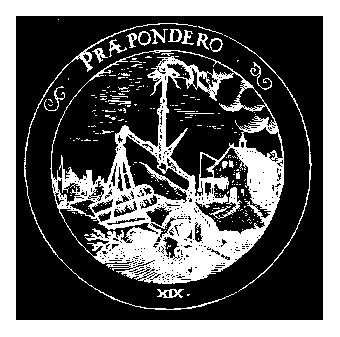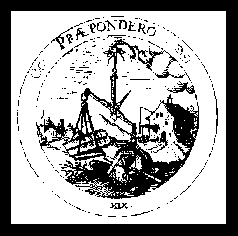Eastern Metaphysics
in Western Art
Hector Currie
(Philosophical Library)
 For "Eastern Metaphysics" you can read "pagan" or "non-judeo Christian" although a few Jewish mystics slip through. We are told that the symbolic forms that give strength and impact to these examples of drama and cinema include Aztec gods in Orson Welles' "Touch of Evil;" the gnostic sect of Mandeans in Southern Babylonia in Edward Albee's "Tiny Alice;" and the three Chalden "sciences" --- numerology, astrology and alchemy in Rowley and Middleton's early 17th century play "The Changeling." The works of Fritz Lang, Godard, John Webster, J.M. Synge, and the construct of the Philadelphia Mint are also revealed to be derived from mystic forms ranging from Pythagorean numerology to Newtonian optics. If better written, it would be more provocative.
For "Eastern Metaphysics" you can read "pagan" or "non-judeo Christian" although a few Jewish mystics slip through. We are told that the symbolic forms that give strength and impact to these examples of drama and cinema include Aztec gods in Orson Welles' "Touch of Evil;" the gnostic sect of Mandeans in Southern Babylonia in Edward Albee's "Tiny Alice;" and the three Chalden "sciences" --- numerology, astrology and alchemy in Rowley and Middleton's early 17th century play "The Changeling." The works of Fritz Lang, Godard, John Webster, J.M. Synge, and the construct of the Philadelphia Mint are also revealed to be derived from mystic forms ranging from Pythagorean numerology to Newtonian optics. If better written, it would be more provocative.
Richard Preston
(Anchor Books)
Pillars of Face it, though: probably it's their parents who will enjoy it most, for its nostalgic look at a Mexico that seems years, as well as miles away. The story follows Blanca Estela (who prefers to be called "Stella.") Her American father has died, and her Mexican mother must leave California and return to her village in Mexico. The difference in food and customs and her meagre Spanish make it difficult for the shy child, and the author describes this imprisoning emotion with a fair amount of insight. When Blanca Estela joins the neighborhood children in their games, she begins to make friends and the reader is treated to a nice slice of Mexican folklore. These songs and games are similar across the Spanish-speaking world, and de la Garza has added an appendix which includes eight of them, as well as references to other works on the subject. This is your classic coming-of-age story, and I love 'em, even though the age I'm coming to can only be described as "old." It is written in clear prose with a genuine understanding of both sides of "La Linea," the border separating Mexico and the United States. The portrait of middle-class life in a small village is a welcome relief from the extremes of abject poverty and toe-sucking luxury which are common stereotypes of Mexican life. I'll be sending this one to my grand-daughter Kady, who is really more of an old child than a young adult, but who has known the value of a good book for a long time.
By the way, chapbooks were sold by the rag-and-bone men of London, and the name is a corruption of "cheap book." The books were tiny, like this one. But cheaper. Or chapper.
But the follow-throughs tend to be redundant, overstated, overdone, inviting the author to please stop.
My heart beats like a jump rope, turning with no one in it...
or
The violins of oranges and eggs. The midnight tea of harmonies...
--- Al Hefid
Gold and
Silver
Beatriz
de la Garza
(Pinata)
(Wu Style):
Body and Mind
in Harmony
The Integration of
Meaning and Method
Sophia Delza
(SUNY Press)
Village
Poet
Leon Pierre
De Quincy
(International)
Calendar
David Eberhardt
(Dolphin Moon)
Maybe I shouldn't say this in public.
I thought she was dead in the back seat.
We pushed her car into the pond,
As it sinks this face rises
Up in the back window...
Poetry
Television
Jim Elgin
(Cold Drill)
from
Corinth
Alice Friman
(Barnwood)
 For some reason, The Indiana Arts Commission assisted in the whelping of this volume --- and many of the poems ache for Metaphor-and/or-Simile Blocking --- such as
For some reason, The Indiana Arts Commission assisted in the whelping of this volume --- and many of the poems ache for Metaphor-and/or-Simile Blocking --- such as